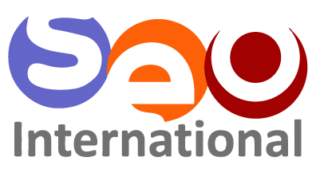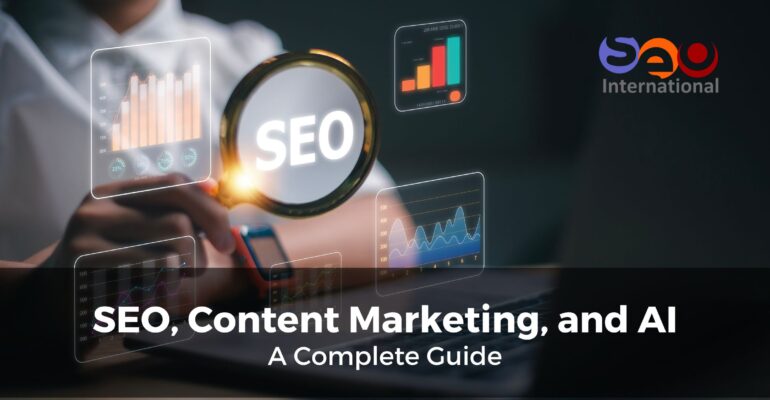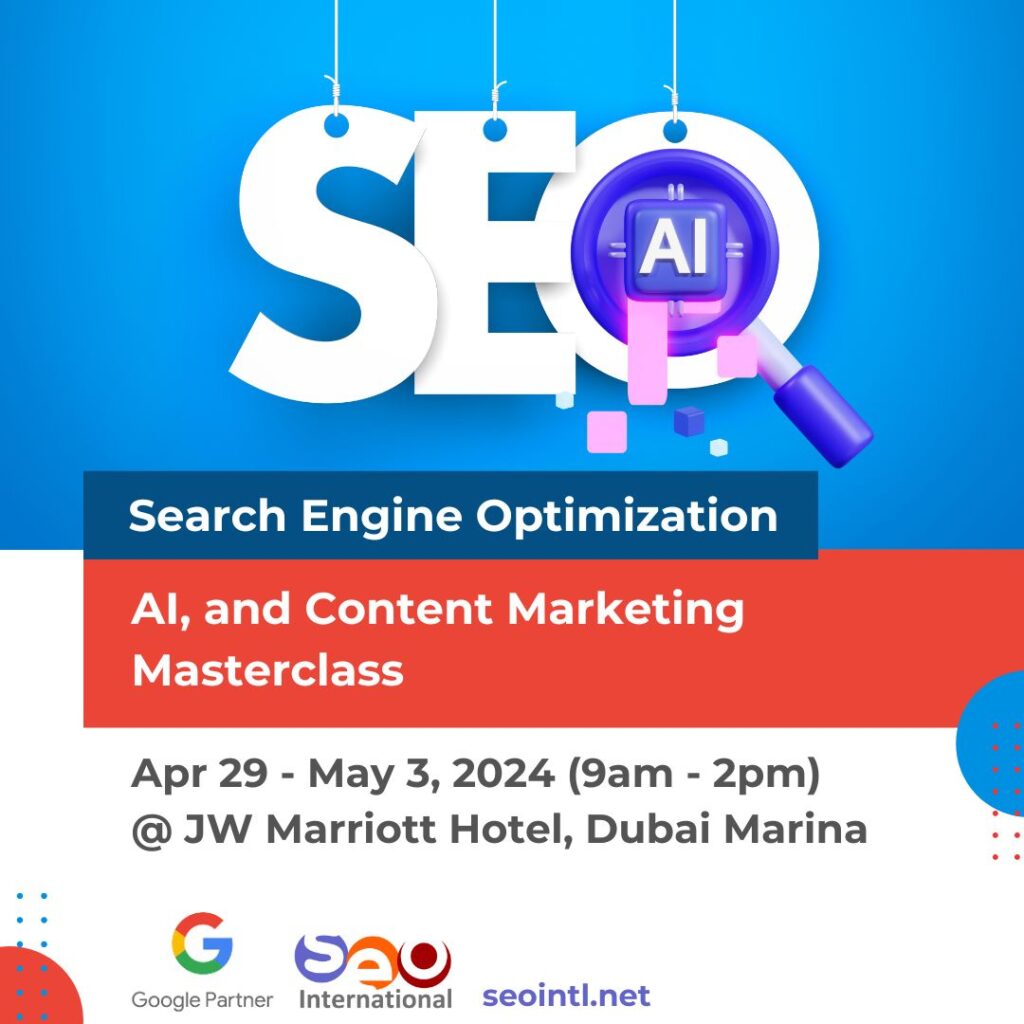SEO, AI, and Content Marketing: The Complete Guide
April 28, 2024 2024-04-28 1:27SEO, AI, and Content Marketing: The Complete Guide
In today’s digital world, search engine optimization (SEO), content marketing, and artificial intelligence (AI) work together to help businesses reach their online goals. This guide will teach you how to make proper strategies and use relevant, powerful tools to improve your search rankings, create engaging content, and better understand your audience. With AI-powered insights, you will gain the strategies you need to succeed in the ever-changing world of online marketing.
What is SEO?
Search Engine Optimization (SEO) is the process of optimizing a website to improve its visibility in search engines’ organic results. It involves various strategies and techniques aimed at increasing the quantity and quality of traffic to your site through organic search engine results.
What is SEM?
Search Engine Marketing (SEM) combines SEO and Pay-Per-Click (PPC) advertising to increase a website’s visibility in search engine results pages (SERPs). SEO focuses on earning “free” clicks by ranking high in unpaid search results, while PPC involves paying for ad placement above or alongside organic results. Anyway, we won’t talk about PPC in the blog post, you can learn about it here.
Why SEO is important?
SEO helps you build a sustainable online presence, drive qualified traffic, and compete effectively (even against larger competitors). SEO is essential because:
- Cost-Effective: It’s a long-term investment compared to the ongoing expense of PPC.
- Targeted Traffic: People actively searching for your offerings are more likely to convert to customers.
- Authority & Trust: High rankings make your business more credible in the eyes of potential customers.
While it is tempting to expect quick results, it’s important to set realistic expectations. SEO is a long game. New websites and small businesses need to understand to avoid discouragement.
What are Google Search Engine Algorithms and how do they work?
Google’s search engine algorithms are sophisticated systems designed to analyze and rank web pages based on how well they match a user’s search query. These algorithms are always being updated, with the core aim of delivering the most relevant and helpful information to searchers. Understanding the principles behind these algorithms can help website owners improve their search rankings and provide a better user experience.
Google’s algorithms rely on numerous factors and signals to determine the best web pages for a search query. Here’s a simplified explanation:
- Crawling: Google has programs called web crawlers that constantly scan the web, discovering new pages and updating information about existing pages.
- Indexing: Google stores all the information discovered during crawling in its massive search index. Think of this index like a vast library of web pages.
- Ranking: When you search, Google’s algorithms analyze hundreds of factors to determine which pages in its index best match your query. These factors include:
- Keywords and Relevance: The algorithm examines if the words in your query appear on a page and analyzes the context of their use.
- Content Quality: Google prefers informative, well-written, and trustworthy content.
- User Experience (UX): Fast loading times, mobile-friendliness, and overall ease of use influence rankings.
- Backlinks: Links from other reputable websites to a page signify authority, boosting its ranking potential.
- Expertise and Authority: Google likes websites that demonstrate expertise in their field.
- Location and Search Settings: Google can personalize results based on your location and previous search behavior.
Understanding how Google’s algorithms function has significant benefits. It’s essential for Search Engine Optimization (SEO), allowing you to tailor your website to align with ranking factors and boost your visibility in search results. Additionally, this knowledge helps you decipher why specific websites rank higher than others. Remember, Google’s algorithms are constantly evolving, so while understanding the fundamentals is crucial, the intricate details of their operation remain somewhat of a mystery outside of Google itself.
Major Google Algorithm Updates
Google frequently releases updates. Here are a few significant ones to be aware of:
- Panda: Targets low-quality content, such as thin or duplicated content.
- Penguin: Penalizes websites that use manipulative link-building tactics.
- Hummingbird: Focuses on understanding the meaning behind queries for better results.
- Mobile-Friendly Update: Prioritizes sites optimized for mobile devices.
- RankBrain: Uses machine learning to interpret complex queries better.
- BERT: A language processing model that improves understanding of natural language in searches.
We have another detailed blog post about Google algorithm updates that you may consider exploring.
SEO, Content Marketing, and AI
The collaboration between SEO, content marketing, and artificial intelligence (AI) is reshaping the way businesses connect with their audience online. AI plays a crucial role in enhancing this partnership by providing smarter analysis and insights. This includes refining keyword searches, optimizing content for better search engine rankings, improving website technicalities, and identifying effective backlink opportunities. AI doesn’t stop there; it also revolutionizes content creation and personalization, helping marketers to produce content that’s both highly relevant and engaging for their target audience. This integration of AI with SEO and content marketing strategies allows businesses to navigate the digital landscape with greater accuracy and success, leading to more meaningful interactions with potential customers.
Let’s explore some details of the collaboration in SEO, Content Marketing, and AI:
- Keyword Research: AI tools like SEMRush analyze vast amounts of search data to identify relevant keywords, trends in search volume, and assess competitor strategies. This helps you target the right terms for maximum impact.
- Content Optimization: AI analyzes top-ranking pages and suggests elements for improvement on your own content, ensuring it’s tailored for search engines (headings, meta descriptions, keyword placement, etc.). For example, Surfer SEO uses AI to analyze top-ranking pages for a given query and provides detailed suggestions for optimizing your content accordingly.
- Technical SEO: AI tools (like Screaming Frog SEO Spider, Lumar.io) can detect technical website issues affecting rankings. They identify things like broken links, slow loading speeds, and crawl errors, providing solutions to fix them.
- Backlink Analysis: AI helps analyze your existing backlinks and identify potential opportunities to acquire high-quality links from relevant websites. Try tools like Ahrefs, and Moz Link Explorer.
- Predictive Analytics: AI can predict user search behavior and changes in search algorithms, allowing you to proactively adjust your SEO strategy. Tools like Google Trends, BrightEdge, and Moz Pro can be helpful.
- Topic Generation: AI tools brainstorm content ideas and help you discover trending topics within your niche. BuzzSumo analyzes content across the web to identify trending topics and popular content formats.
- Content Creation: AI can assist with writing tasks like creating product descriptions, social media posts, or even rough drafts of articles. Tools like ChatGPT, Gemini, Jasper, and Grammarly can help.
- Content Optimization: AI analyzes language patterns and suggests ways to make content more engaging and search-friendly. MarketMuse provides data-driven content briefs to help you create comprehensive content outlines. Clearscope analyzes competitor content and suggests keywords and topics to improve your content’s relevance.
- Personalization: AI analyzes user data to personalize content recommendations and tailor suggestions to individual interests, improving engagement. HubSpot’s Marketing Hub uses AI to analyze user interaction data, enabling personalized content recommendations and marketing automation tailored to individual user behaviors and preferences. Pathmatics analyzes competitors’ social and digital ad campaigns to understand targeting strategies.
- Performance Analysis: AI-powered tools track content metrics, providing insights into what’s working and what needs improvement, guiding future strategy. Google Analytics provides in-depth website traffic data and user behavior insights. BuzzSumo helps analyze content performance across social media.
Understanding SEO Timelines and Expectations
SEO is a long-term investment, especially for new and small businesses. Setting realistic expectations and avoiding getting discouraged by slow initial results is important. Focus on building a strong foundation with keyword research, quality content, and (when appropriate) local optimization. While it may take time to see significant gains, startups and small businesses that prioritize SEO will gradually build their authority and gain visibility in search results. This can lead to long-term, sustainable growth that outpaces competitors who neglect SEO.
A strong brand reputation contributes significantly to your SEO success. Search engines like Google prioritize experience, expertise, authority, and trustworthiness (E-E-A-T) when ranking websites. Positive customer reviews, media mentions in respected publications, and a consistent brand image all signal to search engines that your site is credible and valuable to users. Understanding Google’s algorithms and adapting to updates is also crucial for maintaining good rankings; remember, algorithms evolve.
Understanding Google Algorithms for SEO Success
Google uses complex algorithms to determine how websites rank in search results. Staying informed about these algorithms and their updates is crucial because they directly impact your SEO strategies. By understanding how Google evaluates websites, you can avoid practices that harm your rankings and adapt to changes that prioritize things like quality content and mobile-friendliness.
Google Search helps billions of users every day find the information they need. It works by continuously scanning and indexing the web, much like building a vast library. When you search, Google’s complex algorithm analyzes numerous factors – like keywords, links, freshness, and even your location – to determine which results from its index are most relevant. Since not all websites are equally reliable, Google prioritizes trustworthy sources. Google is always improving, making thousands of updates to its algorithms each year. It even employs human quality raters to make sure its results are consistently helpful and accurate.
Staying aware of Google’s algorithm changes helps you proactively adjust your SEO approach, ensuring your website continues to perform well in search results. Here’s one of our blog posts discussing the same in detail.
On-Page SEO
On-page SEO focuses on optimizing elements directly within your website’s control to improve search rankings and user experience. This includes:
- Content: Delivering relevant, high-quality, and keyword-optimized content is essential for attracting both visitors and search engines.
- Technical Elements: Site speed, mobile-friendliness, heading structures (H1, H2, etc.), and image optimization all contribute to how search engines crawl and understand your site.
- User Experience (UX): Focus on clear navigation, readability, and an overall design that makes it easy for visitors to find what they need.
In this HubSpot video, it’s explained that 70% of marketers find SEO more effective than pay-per-click advertising. The video discusses on-page SEO, which optimizes a website to improve rankings and attract traffic. Key strategies include thorough keyword research, creating engaging content with relevant keywords, and clear page titles and headers. It’s also advised to keep meta descriptions under 160 characters and use alt text for images to enhance visibility in search results. Additionally, internal linking is emphasized to boost a page’s prominence in search engine rankings.
In this blog post, we’ll explore various aspects of on-page SEO with more details. Let’s start from here:
Website/Content Hierarchy: The Foundation for Good SEO and User Experience
A well-structured website hierarchy makes it easy for users to find what they need and for search engines to understand the relationships between your pages. This has a direct impact on SEO and user experience.
Here’s why website proper hierarchy is important:
- Improved Crawling and Indexing: Search engines can easily follow a logical hierarchy to discover and index all important pages on your site.
- Enhanced User Experience: Clear navigation (menus, breadcrumbs, etc.) helps users find information quickly, reducing frustration and increasing the likelihood they’ll stay on your site.
- Better Internal Linking: A clear hierarchy makes it easier to implement internal linking, which distributes authority between pages and helps search engines understand which pages are most important.
In this video from Slickplan, navigating a website is compared to driving in a city — without a clear structure, it’s chaotic. The video highlights the importance of a dynamic and robust database structure for optimal website performance. A well-planned and interconnected site structure not only makes it easier for search engine crawlers to index the site, boosting SEO, but also ensures that internal linking effectively connects all parts of the site, preventing any page from becoming isolated. Additionally, maintaining a shallow click depth is crucial, ensuring that all content is accessible within a few clicks from the homepage.
I’m still in the process of finalizing this blog post, but in the meantime, I hope you find the current content enlightening. Stay tuned for more insights and updates coming your way soon.
I conduct a 5-day SEO, AI & Content Marketing Masterclass that covers all SEO-related topics with practical implementations. In this comprehensive 5-day masterclass, unlock the power of SEO, AI, and content marketing to propel your website to the top of search results. Discover the latest SEO strategies, optimize your content with cutting-edge AI tools like ChatGPT, Gemini, and Perplexity AI, and learn to analyze search trends for proactive success. Master the techniques that drive online visibility, user engagement, and real-world results. This is your ultimate toolkit for staying ahead in the competitive world of digital marketing.
To get more details and the upcoming course schedule, please visit this page.




